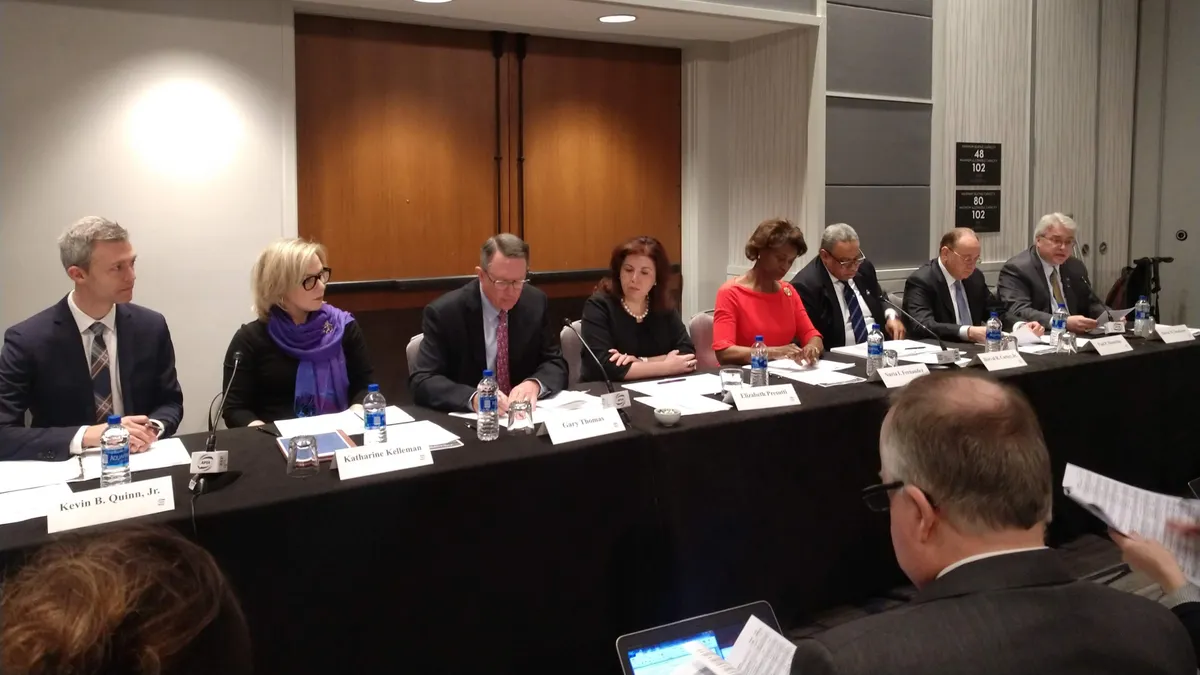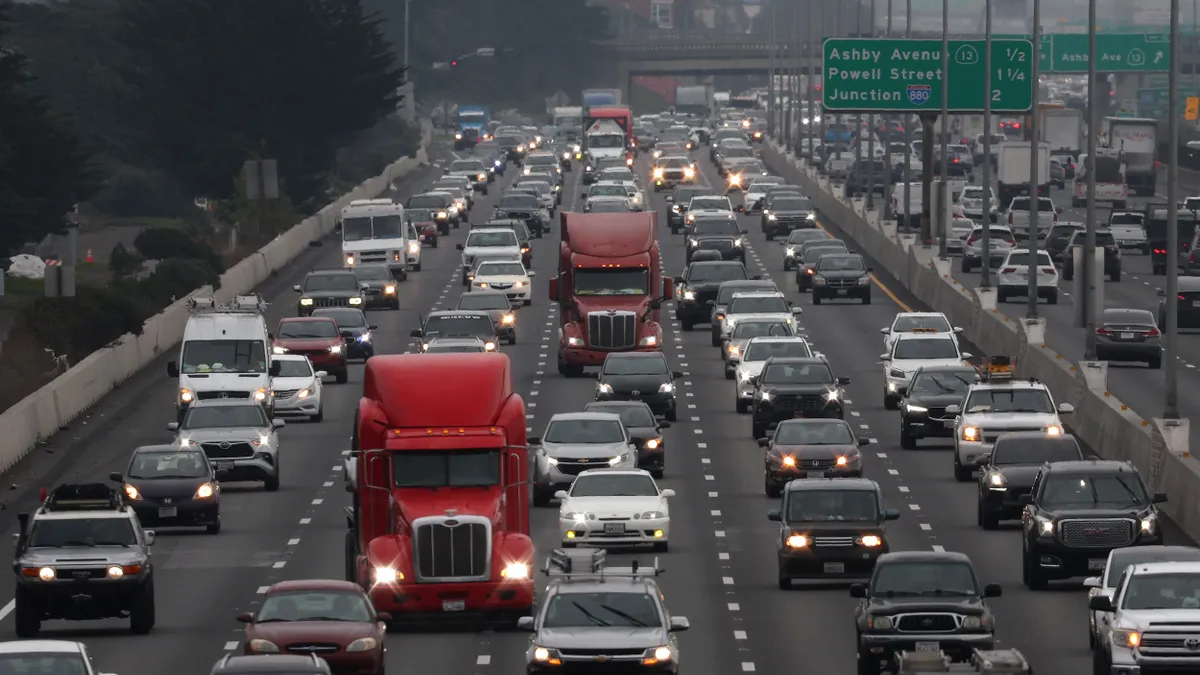President Donald Trump’s budget blueprint for FY 2020 has set off a fresh round of scrutiny and recriminations, with transportation leaders criticizing its proposed cuts in the sector and lamenting the state of the nation’s infrastructure.
The budget plan, entitled “A Budget for a Better America,” is highly unlikely to become law, but sets out the White House’s financial priorities. And it has left advocates for transportation and infrastructure fuming, in part for proposing a 22% cut in the U.S. Department of Transportation’s (USDOT) discretionary funding, but also because they say it does not do enough to push national infrastructure legislation.
“The Administration’s Fiscal Year 2020 budget request is a missed opportunity to increase investment in improving and expanding public transportation at a time when there is strong bipartisan support and a critical need for modernizing America’s infrastructure,” American Public Transportation Association (APTA) president and CEO Paul Skoutelas said in a statement when the budget was released.
Included in the administration’s budget proposal is a plan to rebuild the nation’s infrastructure that it says would generate at least $1 trillion in investment. House Transportation and Infrastructure Committee Chair Peter DeFazio, D-OR, accused Trump of “recycling” the plan he released last year to great fanfare. That plan requested $200 billion in federal funding, with the onus on states and localities to provide more of their own funding, but it died in Congress, to the frustration of city leaders.
There was renewed hope after the November mid-term elections that Congress would try again, and at a hearing on the subject, there appeared to be bipartisan willingness to raise the federal gas tax for the first time since 1993 to help pay for infrastructure fixes.
But the task isn’t getting any easier, according to a new report released by APTA, to coincide with its annual legislative conference in Washington, DC. In it, the association says there are critically-needed investments totaling at least $232 billion for public transit, and includes major priorities like repair and maintenance as well as forward-thinking initiatives such as electrification.
"Unfortunately, public transit is the poster child in many respects for the lack of infrastructure investment in our country,” Skoutelas said at a press conference held to unveil the report.
Those present said the lack of investment in public transportation has meant that equipment like rail cars and buses are coming to the end of their useful lives with no replacements in mind, while train tracks and storage facilities are also showing their age, even in systems that are relatively young.
Dorval Carter, president of the Chicago Transit Authority (CTA), said no private business would have to do what transit has to do with respect to infrastructure. He also pointed out that investing in transit makes sense; APTA says for every dollar spent on public transport, $4 is generated for the economy.
"I think it's safe to say that no company in the private sector would continue to operate with the type of infrastructure that we operate with, without making plans to replace and renew it,” Carter said. “It would be just good business sense, and that's really what we're talking about here when we talk about the need for an investment in transit: it's a business investment."
APTA also said the budget plan for cutting funding to the Federal Transit Administration (FTA) from $13.4 billion in FY2019 to $12.4 billion in FY2020 was not good enough. But during a keynote speech, acting FTA Administrator K. Jane Williams said things are moving forward. She cited an increase in Capital Investment Grant (CIG) funding to help with paying for transit projects as an example; the program would receive $500 million under this blueprint, having received no dollars in the previous two budgets.
"This is progress. It's not perfection, but it is progress, and I think recognizing that is important,” Williams said. “We have put those investments out there in that budget as a way to say we recognize there are needs in transit."
In the press conference, Skoutelas said that money barely scratches the surface of the country’s infrastructure needs, and a bigger investment must be made on something he said is "really not a partisan issue."
“Clearly we're saying yes, we want the continued investment, we want the continued federal role,” Skoutelas said. “The locals have been stepping up in terms of more of their investment to match federal dollars, but there's a far greater need."
Despite the previous false starts and broken promises, Skoutelas said he is still hopeful Congress can get something done on infrastructure, especially as public support is high and people are willing to pay higher taxes and tolls if it pays for such fixes.
"I can't recall a time when the topic of infrastructure and transportation investment has been so readily discussed by the administration, often commented by the president and certainly in Congress,” he said. “There's great interest there, so if the parties can come together with a common goal of making an infusion that really begins again to address the transportation needs in our communities across the country, I think there's an opportunity."




















